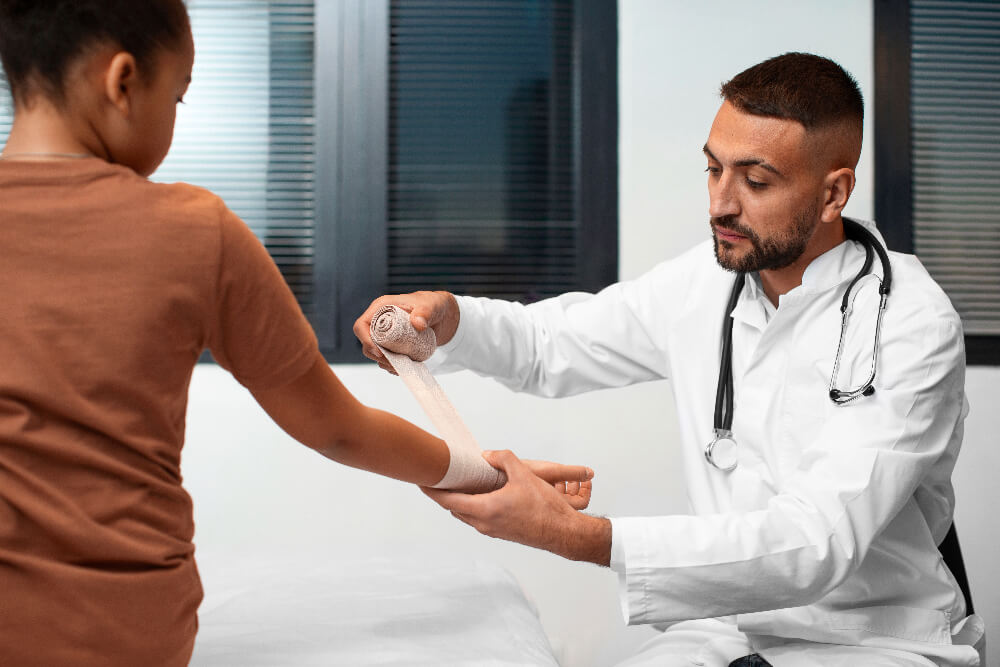Urgent Care: Your First Stop for Minor Injuries
Minor injuries are a common occurrence in everyday life. From sprains and strains to cuts and burns, these seemingly small incidents can cause discomfort and disrupt daily routines. While many minor injuries can be treated at home with basic first aid, some require professional medical attention. Urgent care centers provide a convenient and accessible option for the prompt diagnosis and treatment of a wide range of minor injuries.

Common Minor Injuries Treated at Urgent Care Centers
Urgent care centers are equipped to handle a variety of minor injuries, including:
- Cuts and Lacerations:
- Wound cleaning and closure
- Stitches
- Management of minor bleeding
- Sprains and Strains:
- Diagnosis and treatment of sprains (ligament injuries) and strains (muscle injuries)
- Application of splints or braces
- Pain management
- Minor Burns:
- Assessment and treatment of minor burns, including first- and second-degree burns.
- Wound care and pain management
- Minor Fractures:
- Diagnosis and treatment of minor fractures, such as finger or toe fractures.
- Splinting and referral to a specialist if necessary
- Animal Bites:
- Cleaning and disinfection of bite wounds
- Assessment of infection risk
- Rabies prophylaxis if indicated
- Foreign Body Removal:
- Removal of foreign objects from the skin, such as splinters, thorns, and glass.
- Minor Eye Injuries:
- Irrigation of the eye
- Removal of foreign bodies from the eye
The Benefits of Seeking Urgent Care for Minor Injuries

- Faster Treatment:
- Shorter wait times compared to emergency rooms.
- Receive prompt diagnosis and treatment, minimizing discomfort and potential complications.
- Convenience and Accessibility:
- Many urgent care centers are open evenings and weekends, providing convenient access to care.
- Typically located in convenient locations throughout the community.
- Experienced Medical Professionals:
- Staffed by experienced physicians, nurse practitioners, and other healthcare professionals trained to treat a wide range of minor injuries.
- Cost-Effective Care:
- Often a more cost-effective option than visiting the emergency room for minor injuries.
- Personalized Care:
- Receive personalized care and treatment plans tailored to your specific needs and medical history.
When to Seek Urgent Care for a Minor Injury
- Severe bleeding that cannot be controlled with direct pressure.
- Deep or puncture wounds.
- Signs of infection, such as redness, swelling, warmth, or pus.
- Severe pain or discomfort.
- Difficulty breathing.
- Signs of shock, such as dizziness, fainting, or rapid, weak pulse.
What to Expect at an Urgent Care Center
- Registration:
- Upon arrival, you will be asked to provide basic information and insurance details.
- Triage and Assessment:
- A medical professional will assess your condition and determine the appropriate course of treatment.
- Treatment and Diagnosis:
- Receive necessary treatment, such as wound cleaning, suturing, splinting, or medication.
- Discharge Instructions:
- Receive detailed instructions for home care, including wound care, medication instructions, and follow-up care recommendations.
Conclusion
Urgent care centers provide a valuable resource for the prompt and effective treatment of minor injuries. By seeking care at an urgent care center, you can receive timely medical attention, minimize downtime, and ensure proper healing.
Contact our Urgent care for expert treatment of minor injuries (469) 496-2454 or visit us https://www.tscoaklawn.com/medical-services/
